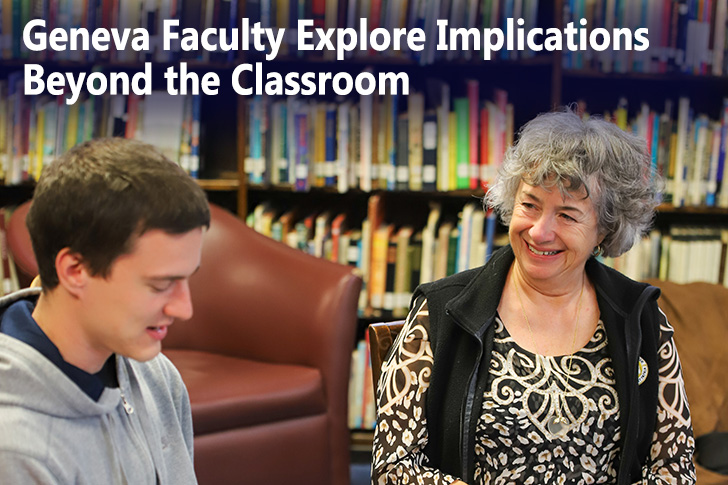
The Internet makes it easier than ever to get an education. Whether you're pursuing your first degree or a graduate degree, flexible online learning environments allow you to learn from the comfort of your home, and often around a schedule that fits your needs. In light of recent trends forcing people to stay at home rather than going to campus to pursue their educations, learning via the web has become not just more popular—it’s now vital.
Yet with an education that takes place online, understanding the different terms is important. Online vs remote education. Though they both take place on the Internet, they are two entirely different formats.
What Is Online Education?
Online education takes place entirely online. Courses may use video lectures or self-paced courses to take students through their learning experiences. Some online education options move students towards certification or a degree. Others are designed for adult learners who want to gain a new skill or polish an existing one, but without actually taking students toward an official degree.
What Are the Benefits of Online Education?
Online education is truly flexible. This is the form of internet-based education that allows you to work on your education on your own time. If you work a job with hours that vary or have children at home that demand your attention, this flexibility can help you achieve your degree or expand your learning even with a busy schedule.
While online education typically does not have scheduled class times, it will have deadlines. Students will need to complete certain aspects of your degree program by certain dates but will be able to decide when they do the work. If you're looking for online education because of its flexibility, then a fully online program is the way to go.
What Are the Drawbacks of Online Education?
Online education has some drawbacks. Some students will struggle with the lack of structure, leaving their work to the last minute and then scrambling to finish it on time. Other students sometimes find lack of face-to-face interaction with their instructor to be another shortcoming of online education environments.
Unfortunately, this flexibility and lack of accountability means many adult learners in online environments don't finish their education, according to Inside Higher Ed. Students must be self-motivated to stick with their programs when learning in this type of environment.
What Is Remote Learning?
Although it also takes place online, remote learning is different from online learning. Remote learning strives to re-create the classroom environment as the student learns through the computer. This means the student logs in to the virtual classroom environment at scheduled times to view lectures or participate in group learning activities.
The coronavirus pandemic caused a rise in emergency remote learning. As colleges and universities have had to shut their doors to protect their faculty and students, they sent students home to study remotely. Many of these schools continue to have their faculty teach at the pre-determined times, but students watch the lectures online rather than sitting in the classroom.
Benefits of Remote Learning
Remote learning provides some benefits worth considering. Because remote learning requires the student to check in at set times to watch lectures and presentations, it has a higher level of accountability than online learning. It's harder for a student to fall behind when they must check in every week for virtual classes.
Remote learning also mirrors the traditional classroom, and for students who learn well in this environment, the structure is a benefit. Online learning, by contrast, is not designed to mirror the traditional classroom.
What Are the Drawbacks of Remote Learning?
Though remote learning tries to mirror the traditional classroom, it cannot bring all of the benefits of the classroom to the home. Students do not interact with their classmates unless they initiate communication online.
Remote learning also doesn’t provide the flexibility of online learning. Adult learners who are working full-time or caring for a family may struggle to log in to the remote classroom at the scheduled times.
Online Learning vs Remote Learning—Which Is Right for You?
So, is online learning or remote learning the right choice for you? Both provide the benefit of learning from home, removing the commute to school and providing a measure of flexibility.
Remote learning has more accountability but requires scheduled class times. Online learning has more flexibility but requires learners to be self-motivated. To find the right one for your needs, you must weigh both options.
If you'd like to learn more about flexible coursework and are looking for a profession that enables you to serve wholeheartedly and faithfully in your life's work, consider the Christ-centered education at Geneva. For more information about how Geneva College can help you pursue your education goals, please phone us at 855-979-5563 or email admissions@geneva.edu.
Opinions expressed in the Geneva Blog are those of its contributors and do not necessarily represent the opinions or official position of the College. The Geneva Blog is a place for faculty and contributing writers to express points of view, academic insights, and contribute to national conversations to spark thought, conversation, and the pursuit of truth, in line with our philosophy as a Christian, liberal arts institution.
Apr 20, 2020Higher EducationRelated Blog Posts
Request Information
Learn more about Geneva College.
Have questions? Call us at 724-847-6505.











 Online Course Login
Online Course Login